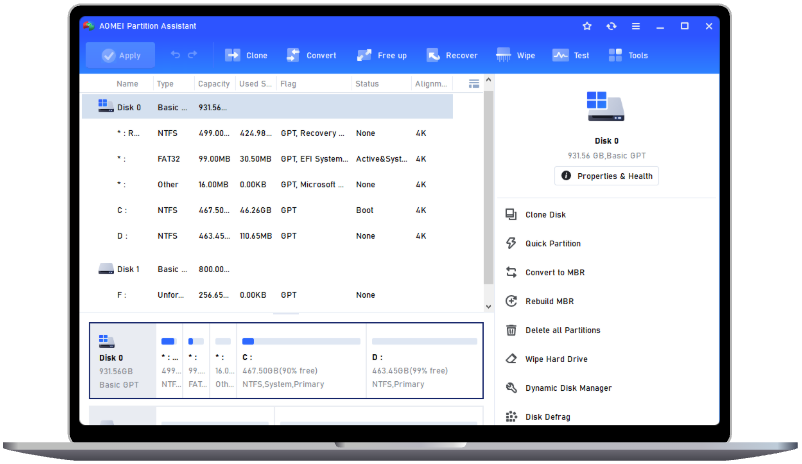What is C Drive? Unveiling the Heart of Your Computer
In the world of computers, the term "C drive" is frequently thrown around, but what does it really mean? Let's delve into the heart of your computer's storage system and understand the significance of the C drive.
What is C Drive?
The C drive, also known as the C: drive, is a fundamental component of your computer's storage hierarchy. It serves as the primary storage location for your operating system, system files, and installed programs. Understanding its role is essential for efficient computer use.
Understanding File Storage:
To comprehend the C drive, one must grasp the concept of file storage. The C drive functions as a repository for data, ensuring that your operating system and applications have a dedicated space to operate smoothly. It's like the brain and heart of your computer, storing vital information for seamless functioning.
Partitioning and Formatting:
When you set up your computer, you encounter terms like partitioning and formatting. These processes are crucial for preparing the C drive for use. Partitioning divides the drive into manageable sections, while formatting establishes a file system. This ensures that the C drive is ready to store and retrieve data efficiently.
Common Misconceptions:
There are several misconceptions surrounding the C drive. Contrary to popular belief, it's not a dumping ground for all your files. Understanding these myths is vital for optimizing your computer's performance and maintaining a clutter-free C drive.
Optimizing C Drive Performance:
To enhance the speed and efficiency of your C drive, consider simple optimizations. Regularly clean up unnecessary files, run disk cleanup utilities, and defragment the drive. These practices contribute to a smoother and faster computing experience.
File Management on C Drive:
Effectively organizing and managing files on the C drive is essential. Categorizing files into folders and removing redundant data not only frees up space but also makes it easier to locate essential files when needed.
Security Measures:
As the primary storage location for crucial system files, securing the C drive is paramount. Implementing robust security measures, such as regular updates, antivirus software, and firewalls, safeguards your data from potential threats.
Troubleshooting Common Issues:
Users often encounter issues with the C drive, such as slow performance or errors. Knowing how to troubleshoot common problems ensures that your computer remains in peak condition. Simple tasks like checking for disk errors and updating drivers can make a significant difference.
Backups and Recovery:
The importance of regular backups cannot be overstated. In the event of data loss or system failure, having a backup on an external drive or cloud storage ensures a quick and efficient recovery process.
C Drive vs. Other Drives:
Comparing the C drive with other disk drives, such as D or E drives, provides insights into their respective roles and functionalities. Understanding the differences helps users make informed decisions about data storage and organization.
Future Trends in Disk Storage:
Advancements in technology continually shape the landscape of disk storage. Exploring future trends, such as solid-state drives (SSDs) and cloud storage, provides a glimpse into the evolving world of data storage.
Impacts of Software Installation on C Drive:
Installing software directly affects the C drive's performance. Understanding how programs utilize space and resources helps users make informed decisions about software installation, preventing unnecessary strain on the C drive.
Best Practices for C Drive Maintenance:
Regular maintenance is key to keeping the C drive in optimal condition. Periodic disk cleanup, software updates, and monitoring storage usage contribute to a smoothly operating C drive.
Conclusion
In conclusion, the C drive is the backbone of your computer's storage system. Understanding its role, optimizing its performance, and implementing security measures are crucial for a seamless computing experience. By following best practices and staying informed about evolving storage trends, users can ensure their C drive remains efficient and reliable.
Frequently Asked Questions (FAQs):
Is it necessary to partition the C drive?
Partitioning is not mandatory, but it helps organize data and improve system performance.
How often should I run disk cleanup on the C drive?
Running disk cleanup monthly is recommended to maintain optimal performance.
Can I install software on a different drive to save space on C?
Yes, installing software on drives other than C can help distribute the load and free up space.
What's the difference between SSDs and traditional hard drives for the C drive?
SSDs offer faster performance and durability compared to traditional hard drives.
Is it possible to recover data if the C drive fails?
Regular backups ensure data recovery even in the event of a C drive failure.


